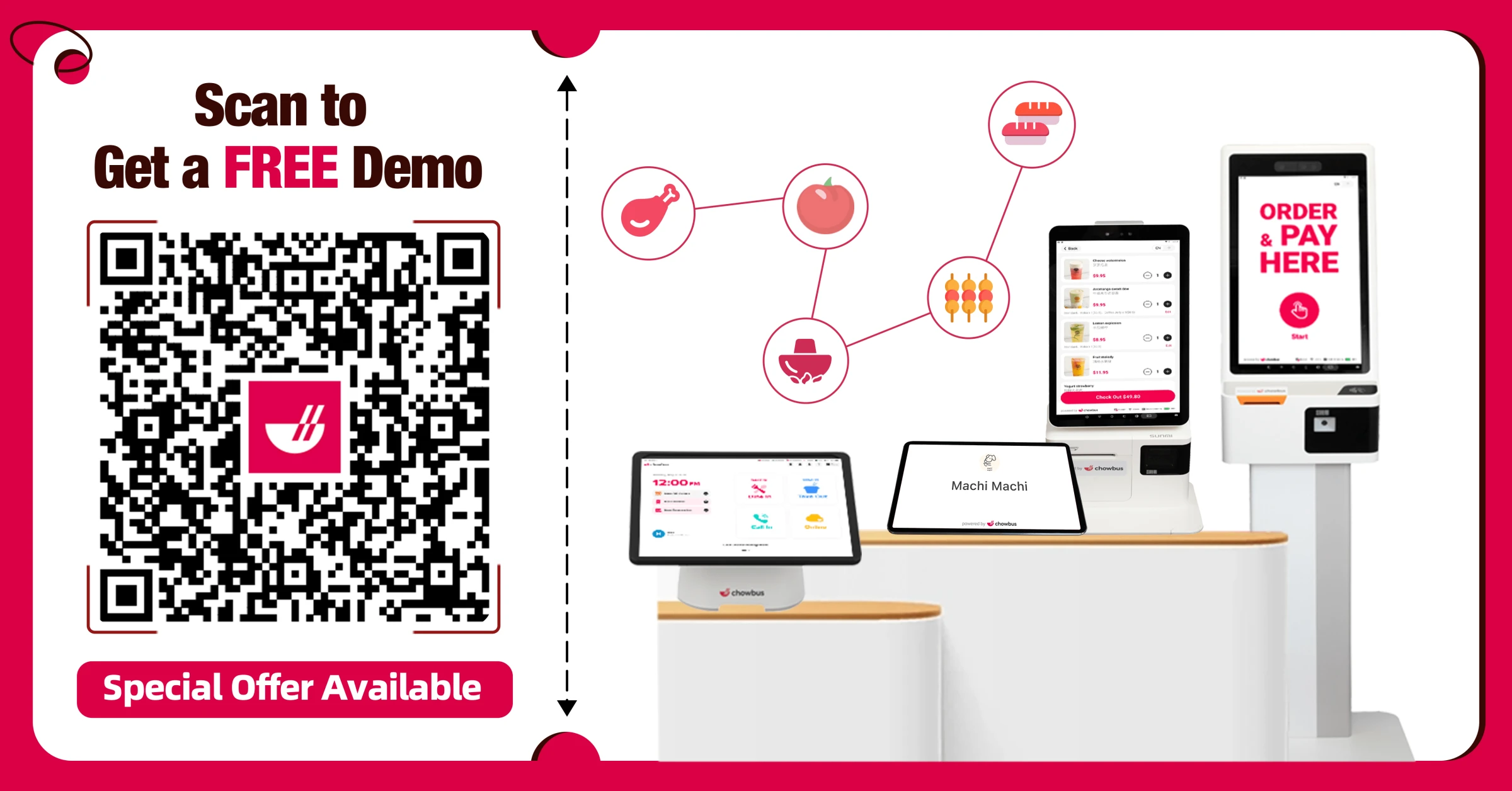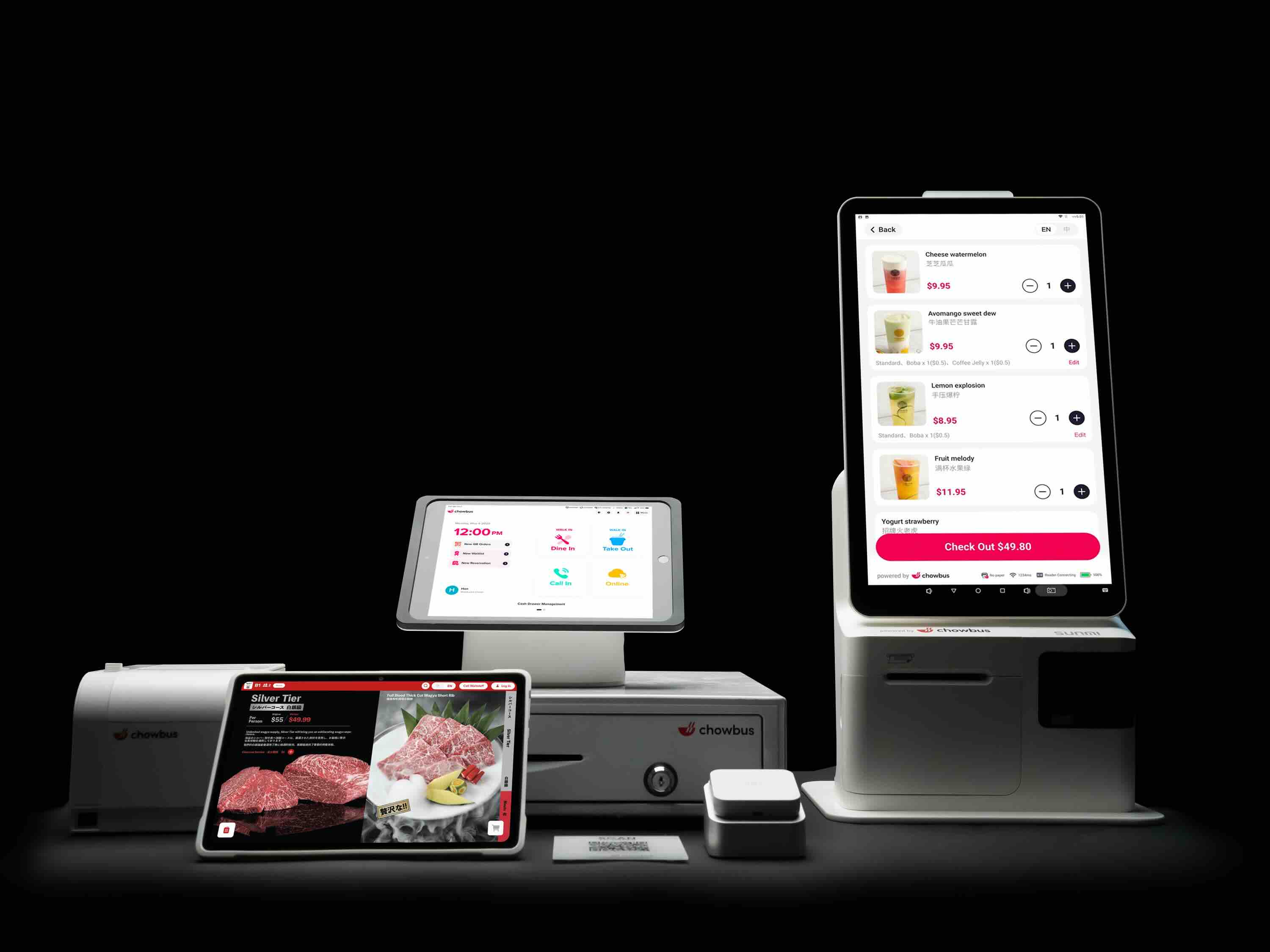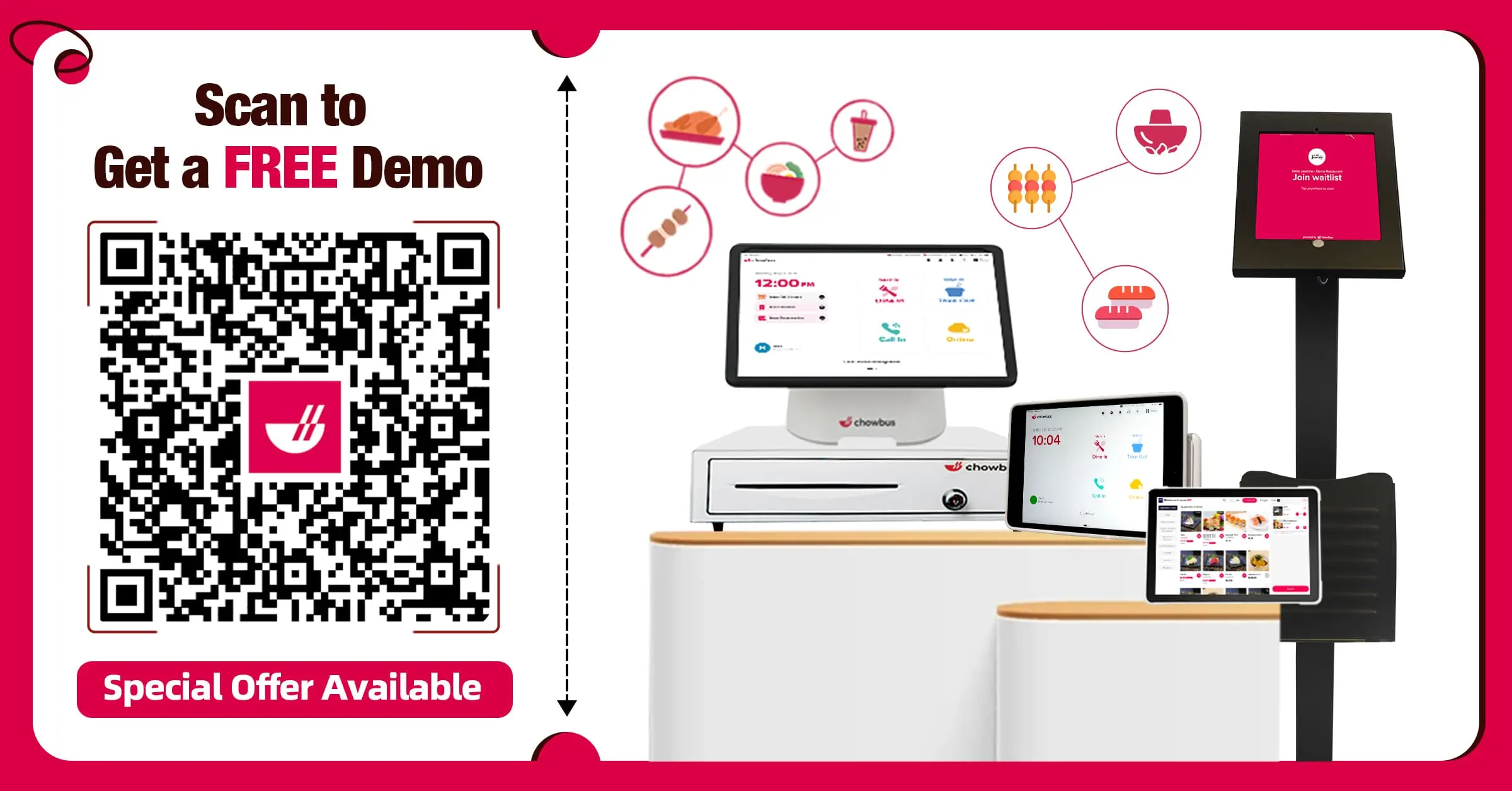Restaurant SaaS: Top 14 Benefits of SaaS for Restaurants

Restaurant SaaS is transforming the way the food service sector operates. In the ever-changing world of restaurant operations, staying current with technology is essential.
Last year, the Software as a Service market was valued at around $197 billion, and it's expected to jump to $232 billion by 2024. This rapid increase highlights the effectiveness and inventiveness that SaaS contributes, particularly for industries such as restaurants.
Adopting top-notch SaaS solutions for restaurants is crucial not only for keeping pace with modern trends but also for discovering new possibilities in business administration and enhancing customer experience.

What is Restaurant SaaS?
Restaurant Software as a Service (SaaS), or SaaS for restaurants, refers to a cloud-based software solution that provides various tools and applications to assist restaurant owners like yourself in managing various aspects of their businesses. These solutions are hosted in the cloud, allowing you to access critical data and functions from anywhere with an internet connection.
Unlike traditional software, SaaS does not require installation or maintenance on your premises, making it a hassle-free and cost-effective option for restaurant businesses of all sizes.
Benefits of SaaS for Restaurants
SaaS point-of-sale (POS) systems offer many advantages for restaurants compared to traditional on-premise POS solutions. Here are the benefits:
1. Less Initial Investment/Cost
Implementing SaaS solutions for restaurants significantly reduces the initial investment required. Unlike traditional software that demands hefty upfront costs for licenses and infrastructure, SaaS models operate on a subscription basis, offering a more affordable entry point. This pay-as-you-go approach frees up capital, enabling you to allocate resources more effectively elsewhere in your business.
2. Reduced Overall Expenses
The best SaaS companies for restaurants understand the need for cost-effectiveness. SaaS systems minimize the expenses related to maintenance, upgrades, and support. By outsourcing these responsibilities to the SaaS provider, you save on the costs associated with employing an in-house IT team, thus reducing your overall operating expenses.
3. Simplified Setup & Easy Installation
One of the key advantages of SaaS solutions for restaurants is the ease of setup and installation. These cloud-based systems do not require extensive hardware setups or complicated software installations. The simplicity of the process means your restaurant can be up and running with the new system in no time, ensuring minimal disruption to your operations.
4. Ease of Use
SaaS systems are designed with user-friendliness in mind. Their intuitive interfaces and straightforward functionalities make them accessible to users with varying levels of technical expertise. This ease of use speeds up training and enhances staff efficiency and productivity.
5. Accessible Anywhere
The mobility that SaaS or cloud computing for small restaurants offers cannot be overstated. Whether you're at home, on the move, or at another location, you can access real-time data and manage your restaurant operations remotely. This flexibility is invaluable in today's fast-paced business environment.
6. Diverse SaaS Features
The best SaaS companies for restaurants continuously innovate, offering a wide array of features that cater to every aspect of restaurant management – from inventory control and employee scheduling to customer relationship management and analytics. This breadth of functionalities means you can tailor the solution to meet your specific business needs.
7. Regular Software Updates & Troubleshooting
SaaS companies for restaurants ensure their software is always up-to-date with the latest features and security enhancements. Regular updates are done automatically without any downtime, ensuring your business is always running on the most current technology. Additionally, any issues are promptly resolved with expert support, just a call or email away, ensuring uninterrupted service.
8. Data Safety and Security
SaaS solutions for restaurants prioritize data safety and security. These systems employ advanced encryption and security protocols to protect sensitive information like customer data and transaction records. With regular security updates and compliance with data protection regulations, you can rest assured that your data is safe and secure in the hands of a reliable SaaS provider.
9. Flexible and Scalable with Easy Modifications
The scalability of SaaS for restaurants is a game-changer. As your business grows or experiences seasonal fluctuations, these systems can be easily scaled up or down to match your needs. This flexibility extends to features and functionalities as well, allowing you to add or modify services without the need for extensive reconfiguration. This adaptability ensures that your SaaS solution evolves in tandem with your business.
10. Seamless SaaS Integration with Other Systems
A major advantage of using SaaS solutions for restaurants is their ability to integrate effortlessly with other software and systems. Whether it's accounting software, reservation platforms, or marketing tools, SaaS systems can connect and synchronize data across various applications, streamlining processes and improving operational efficiency. This interconnectedness leads to more informed decision-making and a more cohesive business strategy.
11. Backup and Recovery
SaaS solutions offer robust backup and recovery systems, ensuring that your data is secure and easily retrievable in case of an unexpected event. Automated backups guarantee that your latest data is always stored safely off-site, reducing the risk of data loss due to system failures, natural disasters, or other emergencies.
12. No Long-Term Contracts or Commitments
Unlike traditional software that often requires long-term contracts, SaaS solutions for restaurants typically operate on flexible subscription models. This approach allows you to test new features or services without the burden of a long-term commitment, providing the freedom to adapt and evolve your tech stack as your business grows and changes.
13. Offline Mode
SaaS solutions for restaurants often come with an offline mode, ensuring uninterrupted service even during internet outages. This feature allows your staff to continue processing orders and payments, maintaining operational continuity. Once connectivity is restored, the system syncs the offline data with the cloud, ensuring no information is lost. This reliability is crucial for maintaining customer satisfaction and smooth restaurant operations.
14. 24/7 Onsite Support Available
Leading SaaS companies for restaurants understand the importance of round-the-clock support. They offer 24/7 assistance to address any technical issues that may arise, ensuring minimal disruption to your business. This constant availability of expert support not only resolves problems quickly but also provides guidance on how to utilize the software best, contributing to your restaurant's overall success and efficiency.
As you can see, SaaS POS software offers various benefits that significantly enhance your restaurant's operations. But what is the broader impact of Restaurant SaaS on the restaurant industry as a whole?
Impact of Restaurant SaaS On the Restaurant Industry
The adoption of Restaurant SaaS solutions has profoundly impacted the restaurant industry as a whole. Here are some of the key ways in which SaaS has reshaped the landscape:
1. Increased Competition
The accessibility and affordability of Restaurant SaaS have lowered the barriers to entry for new restaurant businesses. This has led to increased competition in the industry, forcing established restaurants to innovate and improve their operations to stay competitive continuously.
2. Improved Customer Experience
As more restaurants embrace SaaS technology, customers have come to expect a higher level of convenience and personalization. This shift has driven restaurants to invest in digital solutions that enhance the overall dining experience, from online reservations to mobile ordering and loyalty programs.
3. Operational Efficiency
SaaS solutions have raised the efficiency of restaurant operations. This includes faster order processing, reduced wait times, better inventory management, and enhanced staff scheduling. As a result, restaurants can serve more customers with fewer resources.
4. Data-Driven Decision-Making
The availability of real-time data and analytics has empowered restaurant owners to make data-driven decisions. This has led to more informed choices regarding menu items, pricing, marketing campaigns, and even expansion plans.
5. Adaptation to Industry Trends
The restaurant industry is constantly evolving, with new trends emerging regularly. Restaurant SaaS allows businesses to quickly adapt to these trends, whether it's the rise of food delivery services, the popularity of plant-based menus, or the demand for sustainable practices.
6. Improved Profitability
Ultimately, the impact of Restaurant SaaS on the restaurant industry has been positive, leading to improved profitability for many establishments. By optimizing operations, reducing costs, and attracting more customers, SaaS solutions have contributed to the financial success of numerous restaurants.
Why Would Restaurants Find the SaaS Model Very Attractive?
Now that we've explored the impact of Restaurant SaaS on the industry, you may wonder why so many restaurant owners find the SaaS model attractive. Let's delve into the factors that make SaaS particularly appealing to restaurants.
1. Lower Initial Costs
Traditional restaurant technology solutions often require a significant upfront investment in hardware, software licenses, and installation. In contrast, SaaS operates on a subscription-based model, allowing you to start using the software with minimal initial costs.
2. Predictable Expenses
With SaaS, your expenses are predictable and consistent. You pay a monthly or annual subscription fee covering software updates, maintenance, and support. This predictability makes budgeting and financial planning more straightforward.
3. Automatic Updates
SaaS providers regularly update their software to improve functionality, security, and performance. These updates are typically automatic and require no action on your part. This ensures your restaurant always benefits from the latest features and security enhancements.
4. Scalability
Whether you're running a small neighborhood café or a bustling restaurant chain, Restaurant SaaS can scale to meet your needs. You can easily add or remove users, access additional features, and expand your software as your business grows.
5. Accessibility
The cloud-based nature of Restaurant SaaS means you can access your software and data from anywhere with an internet connection. This flexibility allows you to manage your restaurant operations remotely and stay connected, even when you're not on-site.
6. Reduced IT Overhead
Maintaining on-premises hardware and software can be costly and time-consuming. SaaS solutions eliminate the need for in-house IT support, as the service provider handles updates, troubleshooting, and maintenance.
7. Focus on Core Competencies
By outsourcing your technology needs to a SaaS provider, you can focus more on what you do best: running your restaurant. This shift in focus allows you to allocate your time and resources to improving food quality, service, and customer satisfaction.
Will SaaS Replace Traditional POS Systems?
The question isn't if, but when. The trajectory of SaaS for restaurants indicates a clear shift towards cloud-based solutions. Here's why:
Market Growth: The global Point of Sale (PoS) market is experiencing an unprecedented surge, with projections indicating a jump to USD 81.15 billion by 2030. Within this, the niche for SaaS POS systems is burgeoning, expected to reach a staggering $9.9 billion by 2027.
Adoption Rate: The adoption rate is a clear indicator of the trend. Over a quarter of quick-service and fast-casual restaurants have already embraced SaaS, with a notable 35% of full-service restaurants following suit. The mobility and flexibility of SaaS have made it an indispensable tool for 95% of food trucks.
Shifting Preferences: Despite 81% of independent operators still using legacy POS systems, a significant shift is underway. Approximately 75% of these operators are considering a switch to newer technology systems within the next year. This trend is even more pronounced in fine dining establishments, where 85% are contemplating a change.
Increasing Investment: Looking ahead to 2023 and beyond, investment in restaurant technology is not only growing but accelerating. About 71% of independent and small chain restaurant operators plan to increase technology spending. A notable focus of this investment is cloud-based POS systems, with 54% of operators intending to channel their resources in this direction.
Future Predictions: The momentum for SaaS is only growing. Forecasts suggest that nearly 85% of business applications will be SaaS-based by 2025. This is supported by the fact that almost all businesses use at least one SaaS solution. The expected increase in SaaS spending, surpassing $200 billion, further cements its future role.
Is SaaS Right for Your Restaurant?
Harnessing the power of cloud-based technology through Restaurant SaaS enables you to streamline operations, boost customer satisfaction, and drive profitability. However, the decision to embrace Restaurant SaaS should be based on your restaurant's unique business needs and goals.
Evaluate your restaurant's requirements, budget constraints, and long-term objectives to determine if SaaS is the right fit for you. Remember, staying competitive is key, and Restaurant SaaS might be the crucial component you've been looking for.
So, take the leap, explore the best SaaS companies for restaurants, and unlock the full potential of your establishment. Embrace Restaurant SaaS and set the stage for success!
Are you considering a shift to SaaS?
Discover how Chowbus POS can transform your restaurant's operations. Book a Free Demo/Consultation today and explore our all-in-one SaaS solution designed to boost your restaurant's efficiency and revenue.
Our SaaS model ensures you have access to the latest technology without the hassle of traditional systems. Take the first step towards a brighter future for your restaurant – book your demo today.

Frequently Asked Questions About SaaS for Restaurants
Dive into our comprehensive FAQ section to discover key insights about Software as a Service (SaaS) applications in the restaurant and hospitality industry, where we address common queries and explore the benefits and examples of SaaS solutions tailored for this sector.
Do Restaurants Use SaaS?
Yes, many restaurants use Software as a Service (SaaS) platforms. These services offer solutions for reservations, point of sale systems, inventory management, customer relationship management, streamlining restaurant operations, and enhancing customer experiences. By adopting SaaS, restaurants can efficiently manage their business in a cost-effective, scalable, and accessible manner.
What is the SaaS Solution for Restaurants?
The SaaS solution for restaurants refers to cloud-based software services designed to streamline and enhance various operational aspects of a restaurant. This type of solution encompasses tools for managing front-of-house activities, kitchen operations, and back-office tasks. By adopting a subscription model, these systems leverage cloud technology to offer increased operational flexibility. This integration of SaaS in restaurants is crucial for achieving efficient and profitable management.
What is SaaS in Hospitality Industry?
SaaS in the hospitality industry refers to cloud-based software solutions that are accessed online rather than installed on individual computers. This model allows hotels and other hospitality businesses to use software applications for various functions like property management, customer relationship management, and booking systems, without the need for extensive infrastructure or technical expertise.
What is an Example of a SaaS Solution?
An example of a SaaS solution is Google Workspace. It offers cloud-based productivity tools like Gmail, Docs, Drive, and Calendar, accessible online without installing software on individual devices. This model allows for convenient, scalable, and collaborative work experiences.
What is One of the Most Popular Software as a Service SaaS Examples?
One of the most popular Software as a Service (SaaS) examples is Salesforce. Salesforce provides customer relationship management services and applications focused on sales, customer service, marketing automation, analytics, and application development. Its cloud-based platform allows businesses to efficiently manage and analyze customer activity, making it a leading choice in the SaaS industry.
Why is SaaS Better than PaaS?
SaaS (Software as a Service) is often better than PaaS (Platform as a Service) for most end-users because it provides ready-to-use, fully managed software applications. Unlike PaaS, which requires users to develop and manage apps, SaaS offers hassle-free access to applications without the need for setup, infrastructure management, or maintenance. This makes SaaS ideal for businesses seeking immediate, scalable, and user-friendly software solutions with minimal technical involvement.

Recommended Articles:
What is a POS Terminal? How Does Point of Sale Terminal Work
Best Restaurant Tablet Ordering & Tableside Ordering Systems